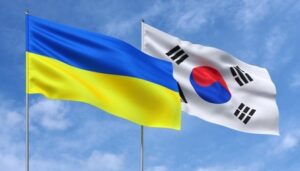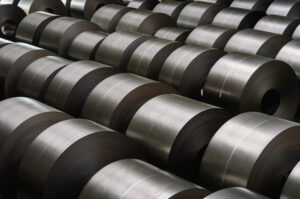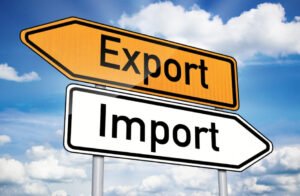
In 2024, Milk Alliance Group, one of the leaders in dairy processing in Ukraine, supplied its products to 27 countries, although in the pre-war period the export geography included 38 countries, said Serhiy Vovchenko, Chairman of the Supervisory Board of the Group.
“Last year, we exported products worth only about UAH 1 billion. This is not enough. At the same time, we received about UAH 8.6 billion in revenue,” he said at the Business Wisdom Summit 2025 on Friday.
Mr. Vovchenko noted that to be competitive, a food processing company needs to keep a close eye on three things: innovation, quality, and price.
Speaking about Milk Alliance, he expressed confidence that its products have no problems with innovation and quality. However, its cost is currently higher than in many European countries where producers receive subsidies from the European budget. This makes Ukrainian dairy products uncompetitive in the international arena.
“The cost of raw materials in our dairy industry accounts for 68-70% (of the total cost – IF-U). The state, business, and associations need to work to ensure that we are competitive in the third component, the price. Then we will be known, much more widely and in demand, and the currency will come to the state. After all, what is a billion hryvnias? It’s nothing at all. We used to sell much more, three times more for export. And now, unfortunately, we are at a standstill,” emphasized the Chairman of the Supervisory Board of Milk Alliance Group.
Mr. Vovchenko also said that after a series of trips to international congresses, he became convinced of the non-competitiveness of Ukrainian dairy products in the European market and the biased attitude of European colleagues towards Ukrainian producers. In his opinion, state protectionism can solve this problem.
“The duty-free trade agreement will expire on June 5. This is a very serious challenge for us. If it is not extended, we will lose. If a duty is added, we will not be competitive in the European market at all,” he said, adding that the way out is to increase exports to the Middle East and North Africa.
Milk Alliance Group is a leader in the Ukrainian dairy industry with five powerful dairy processing plants: Yagotynsky Butter Plant, Yagotynske for Children baby food plant, Pyriatyn Cheese Plant, Zolotonosha Butter Processing Plant and Bashtanka Cheese Plant.
The company specializes in the production of milk, fermented milk products, butter, cheese and dried dairy products, which it sells under the brands Yagotynske, Yagotynske for Children, Pyriatyn, Slavia, Zlatokrai, and Milk Alliance.
According to the company’s website, in 2024, the Group’s enterprises harvested 284.22 thousand tons of milk, produced 16.21 thousand tons of cheese, 3.671 thousand tons of butter, 48.6 thousand tons of milk, 53.94 thousand tons of fermented milk products, and 11.89 thousand tons of baby food.

The delegation of the Ministry of Investment, Industry and Trade of the Republic of Uzbekistan, headed by Minister Laziz Kudratov, held a series of meetings and negotiations with the leadership of leading corporations, large companies and industry associations during its official visit to the United States.
According to the program of her visit, on April 7, she met with representatives of companies operating in strategically important areas such as mining, hospitality and food industry.
The management of a number of companies praised the reforms in Uzbekistan, relying also on the successful cases of American companies with many years of experience in the country, and expressed readiness to expand cooperation.
As a result of the meetings, agreements were signed on cooperation in the field of critical minerals, agreements were reached on investments in exploration and production of minerals, construction of fine ore grinding complexes (HPGR), introduction of innovative technologies and creation of added value of critical raw materials, as well as training of Uzbek specialists.
In addition, the parties agreed on the timing of the implementation of new projects in the field of tourism – hotel construction.

The Republic of Korea is providing $4.76 million to improve the efficiency and accountability of the Ukrainian government through a three-year project implemented by the United Nations Development Program (UNDP). On Monday, the leadership of UNDP Ukraine and the Korea International Cooperation Agency (KOICA) in Ukraine signed an agreement in Kyiv.
“The funds will be allocated through the project “Strengthening Digital Governance for Increased Efficiency and Accountability of the Government of Ukraine”, which will be implemented by UNDP in Ukraine in 2025-2027 in partnership with the Ministry of Digital Transformation of Ukraine and the Secretariat of the Cabinet of Ministers of Ukraine. The aim of the initiative is to increase the efficiency and transparency of the central government, primarily the Cabinet of Ministers of Ukraine and ministries, by developing and implementing digital tools for coordination, policy development, and monitoring decisions,” the UNDP Communications Department informed.
Among other things, the project envisages the introduction of “Actions for Civil Servants” to help optimize administrative workflows and improve interaction between government agencies and employees.
“We continue to build the most convenient digital state. We are launching new services, transforming entire areas of life, and removing bureaucracy. And every country that helps us along the way is our partner in change. So I am grateful to the Republic of Korea for supporting our initiatives that will help make the government’s work faster and more efficient,” said Mykhailo Fedorov, Deputy Prime Minister for Innovation, Education, Science and Technology Development and Minister of Digital Transformation.
The initiative aims to strengthen governance in Ukraine by digitizing government coordination processes, monitoring decisions using digital tools, improving policy development processes, and empowering civil servants to use the developed information systems.
“Korea supports Ukraine in this difficult time. Working with UNDP to develop digital technologies for government agencies is an example of our commitment to contributing to the country’s long-term recovery, which will have sustainable, resilient results that matter to all citizens,” said Lee Tae-kin, Director of the KOICA Office in Ukraine.
UNDP Resident Representative in Ukraine Jaco Silje emphasized the importance of the project for increasing the accountability of the central government. “The project will help to create digital tools that will greatly facilitate interaction for state executive authorities and the decision-making process. This will further improve planning and strategy development. In turn, this will help guide the reform and recovery process for government agencies,” said Silier.
It is emphasized that Korea, in cooperation with UNDP, provides support to Ukraine in a number of critical areas. Earlier, $20.79 million was allocated to support early recovery and local development projects in the war-affected Zaporizhzhia, Sumy, and Kherson regions. In addition, the Republic of Korea has supported efforts to improve services for people with disabilities and strengthen energy infrastructure.

Agro Kar (Kropyvnytskyi) plans to start assembly-line production of tractors for agriculture in September this year in a new 2,000 sq m workshop currently under construction, said Dmytro Kysylevskyi, deputy chairman of the Verkhovna Rada Committee on Economic Development.
“The Made in Ukraine economic policy gives birth to new plants. Companies that previously only imported or repaired equipment are becoming manufacturers thanks to government programs,” he wrote on his Facebook page.
The total investment in the project is about UAH 100 million.
Kysylevsky said that Agro Kar has already invested UAH 30 million in launching tractor production – post production involves the production of each tractor at a separate site.
He noted that to implement the project of launching a new workshop, Agro Kar raised UAH 30 million under the 5-7-9% affordable loan program. Another UAH 8 million will be received as a state grant for the processing industry to purchase a laser machine.
“If the company reaches the required degree of localization, it will be able to join the program to compensate 25% of the cost of Ukrainian-made agricultural machinery,” Kysylevsky notes.
He specifies that domestic manufacturers of spare parts and components will be involved. In particular, Agro Kar purchases hydraulics and distributors for tractors from Hydrosila (Kropyvnytskyi), radiator blocks from Promtransenergo (Sumy), lubricants from JV Yukoil (Zaporizhzhia), control cables from Technoprivod (Rivne), high-pressure hoses – Motorimpeks (Kalush), batteries – Ista-Center (Dnipro), glass – Safe Glass Factory (Berdychiv), polymers and rubber seals, tanks – Poly Plast, wires and harnesses – Mac Farmer (both Kropyvnytskyi).
In addition, negotiations are underway to adapt the production of Rosava tires (Bila Tserkva) and Consima wheels (Dnipro) to the requirements of the company.
“Currently, the production volume is 12 tractors per month. After the launch of conveyor production, the company plans to increase production to 50 machines per month,” said Kysilevsky.
According to its website, Agro Kar has been operating since 2009. Currently, it repairs and modernizes agricultural machinery and supplies spare parts for agricultural machinery, including John Deere, Wil Rich, Case, DMI, Great Plains, Kinze, and Kraus.
“Agro Car also produces spare parts for agricultural machinery.
According to opendatabot, in 2024, the company doubled its net profit compared to 2023, to UAH 4.8 million, with revenue growing by 45% to UAH 74.4 million.
The company is owned by two local entrepreneurs, Andriy Teplyuk (60%) and Oleksandr Pustylnyk (40%).

In January-March 2025, imports of tin and tin products increased by 43.5% to $890 thousand ($277 thousand in March).
Exports decreased to $55 thousand (against $81 thousand a year earlier), of which $50 thousand in March.
In 2024, imports amounted to $3.19 million (+16.9%), exports – $389 thousand (+144%).
Tin is used mainly as a safe, non-toxic, corrosion-resistant coating in its pure form or in alloys with other metals. The main industrial applications of tin are in white tinplate (tinned iron) for food containers, in solders for electronics, in house pipelines, in bearing alloys, and in coatings made of tin and its alloys.
The most important tin alloy is bronze (with copper).

Imports of zinc and products in the first quarter of 2025 decreased by 17.8% to $9.75 million ($3.74 million in March).
Exports increased sixfold to $266 thousand ($89 thousand in March), while in 2024, the figure was $44 thousand for the same period.
At the end of 2024, imports amounted to $58.6 million (+27.5%), exports – $563 thousand (+4.3 times).
Pure zinc metal is used to restore precious metals, protect steel from corrosion and for other purposes.